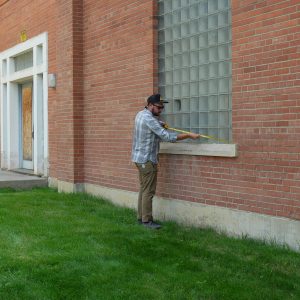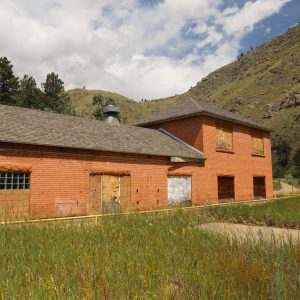At the beginning of summer, I knew nothing about water treatment or bats. I didn’t even think those things could be related or even tied together by historic preservation. But, by the end of the summer that all changed.
My internship with the City of Fort Collins centered on the preservation side of a project at Water Treatment Plant No. 1 in the Poudre Canyon. Not only did this internship help me develop professional preservation skills, but it also allowed me to provide a historic perspective to an interdisciplinary project. I worked with folks ranging from wildlife biologists to construction managers. Working on this project challenged me to think outside of the box and into other areas I never would have expected.

The project site was the first water treatment plant in Fort Collins. Built in 1910 as a response to a typhoid epidemic and growing population, Water Treatment Plant No. 1 served the Fort Collins community for 77 years. The plant is no longer in use, but that does not mean it is vacant. Little brown bats roosted in one of the sections of the filtering buildings. This posed an interesting challenge in exploring options of preserving a cultural resource while also thinking about how to conserve wildlife. It really opened me up to how many different stakeholders, both human and non-human, have a stake in preservation projects.
My days consisted of researching, filling out survey forms, fieldwork, and preparing grants. That side of the project provided me with professional preservation experience. The presence of the bats pushed me to think creatively about how to manage a cultural resource that held a natural resource within it. Working on an interdisciplinary team challenged me to look at different perspectives while also empowering me by allowing me to bring my expertise in preservation to the project’s table.

A key take away this summer was the value of interdisciplinary work. Working in a settling like that pushes you to be open to different ideas and to see things from different perspectives. My advice to other historians in training is just that. Be open. You never know where it where it will end up taking you and what you will end up learning.